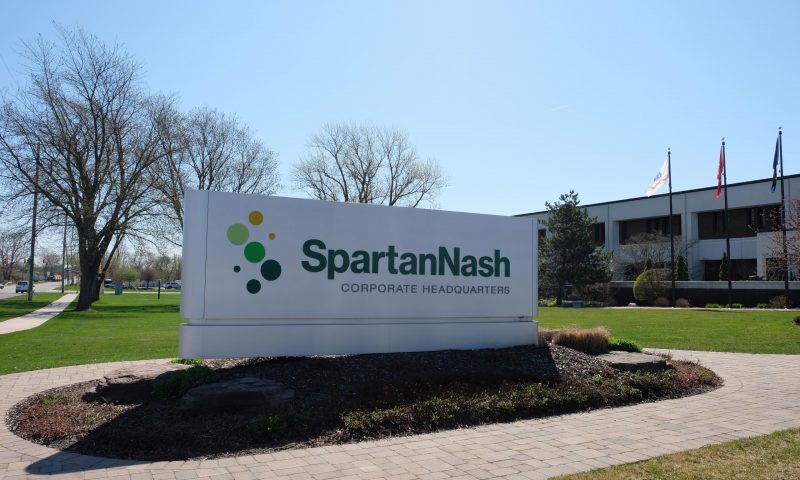SpartanNash Company (SPTN) had a rough trading day for Thursday November 07 as shares tumbled 8.68%, or a loss of $-1.2 per share, to close at $12.63. After opening the day at $13.18, shares of SpartanNash Company traded as high as $13.40 and as low as $12.40. Volume was 547,485 shares over 4,474 trades, against an average daily volume of n/a shares and a total float of 36.33 million.
As a result of the decline, SpartanNash Company now has a market cap of $458.9 million. In the last year, shares of SpartanNash Company have traded between a range of $23.00 and $8.82, and its 50-day SMA is currently $n/a and 200-day SMA is $n/a.
SpartanNash Company is a multi-regional grocery distributor and retailer. The company operates in the United States and is segmented into Military, Food distribution, and Retail. Its Military segment consists of the distribution of products to The United States military commissaries, which provide food to active-duty, guard, reserve, or retired members of the military at discounted prices. The Food distribution segment proves to be the principle division, deriving the revenue streams for the company. Its retail division consists of supplying both independent grocery retailers and owned retail stores.
SpartanNash Company is based out of Grand Rapids, MI and has some 14,000 employees. Its CEO is Dennis Eidson.
SpartanNash Company is a component of the Russell 2000. The Russell 2000 is one of the leading indices tracking small-cap companies in the United States. It’s maintained by Russell Investments, an industry leader in creating and maintaining indices, and consists of the smallest 2000 stocks from the broader Russell 3000 index.
Russell’s indices differ from traditional indices like the Dow Jones Industrial Average (DJIA) or S&P 500, whose members are selected by committee, because they base membership entirely on an objective, rules based methodology. The 3,000 largest companies by market cap make up the Russell 3000, with the 2,000 smaller companies making up the Russell 2000. It’s a simple approach that gives a broad, unbiased look at the small-cap market as a whole.

